Embracing Lent
BY FR. JAMES HUG, S.J. | March 14, 2018
The first Preface for Lent in the Catholic liturgy begins by thanking God for giving us “this joyful season.” That’s not the way I grew up thinking of and experiencing Lent! It was more about giving things up [often candy as a kid. Oh how we looked forward to noon on Holy Saturday when the candy ban expired!], fasting, doing penance, generally working to purify ourselves of our sins. It was a yearly renewal retreat on a large scale, one we were glad to finish each Easter.
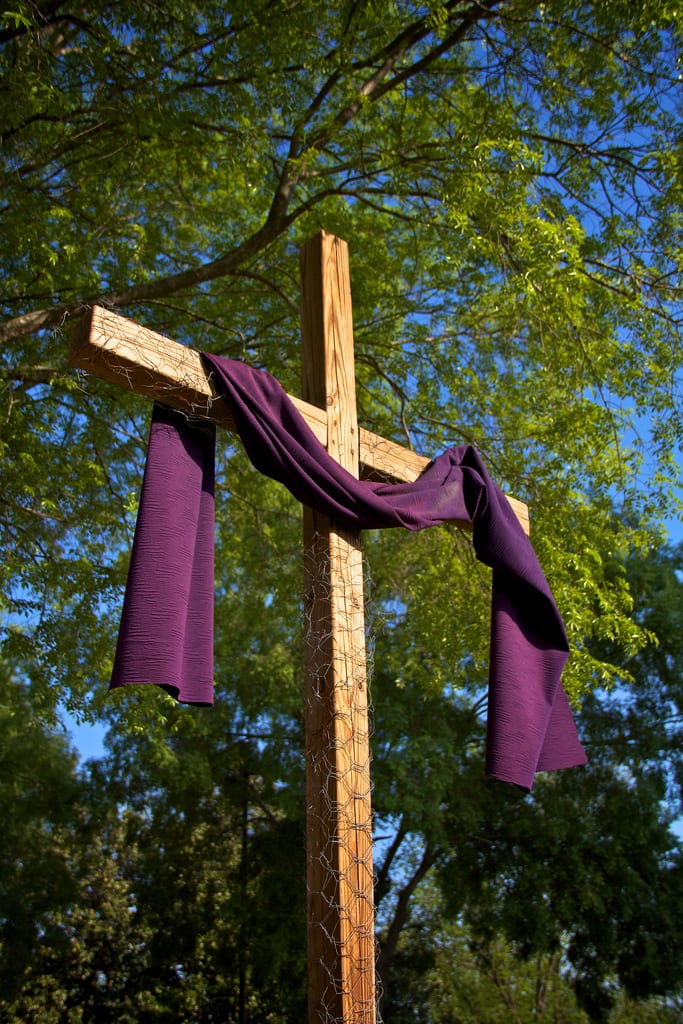
[Greg Williams via Flickr]
It is obvious from experience that some ways of living are more successful, rewarding, and enriching than others. It doesn’t take most of us any time to acknowledge the difference between being a victim of trafficking or racial discrimination and being a member of a loving, secure, and free family – or to hesitate a moment in indicating which we would prefer for ourselves and our loved ones.
So Lent can be seen as a time to respond to the invitation from God to come more fully alive! To shed some of the patterns and habits that harm us and weigh us down personally, that keep us from being as free and loving and alive as we could be. That keep us from achieving what we want or feel called to achieve. And that foster destructive and painful relationships in our communities.
So when Jesus opens his public life in Mark’s account [1:12-15], his message can be translated,
“This is a time of great opportunity!
Things are coming together and God is here in it.
Rethink your values and your lives and believe in the good news.”
What does that message say to us this year? It is certainly true that this is a time of great turmoil, change, and opportunity—for good and for ill. Jesus’s message would certainly be that we should not be afraid, that God is here and at work in it all. I’m confident that the rest of his message holds true for us today too: if we rethink our values and our lives and choose to believe in and live by the good news, we will become freer, more fully alive. To redeem a phrase, we can become more truly great.
What is that good news? That Way to fuller life? We will be reminded of the key elements of it as we move through the Lenten liturgical season. But we can summarize it pretty succinctly here. At the heart of it all is love. Jesus was clear: we can boil the guidelines for fuller life down to “Love God with all you are and love your neighbor as yourself.”
Jesus spelled out the love of neighbor in many places and ways, but the best summary remains his parable of the Last Judgment in Matthew’s gospel [Matt. 25:31-46]. He says that it will be good news and we will become more fully alive when we feed the hungry, give drink to the thirsty, welcome the stranger [the “other,” the migrant, the refugee], clothe the naked and shelter the poor, visit and care for the sick and the imprisoned. And most stunning of all: he identifies with them and will experience it as done to himself.
If you are paying attention to what’s going on in the country at all these days, you can’t help but realize that this is indeed “a time of fulfillment,” a time of opportunity and a time in which we are in the process of rethinking our values and our lives together. How we will respond as a nation to pretty much all of the areas Jesus called attention to is being debated right now in our public arena in the form of budget proposals and appropriations. As we attend to them, we need to be consciously asking ourselves, How would God’s good news require us to rethink our values and ways of living to become more fully alive in responding to this situation?
Feed Christ in the hungry? One of the prominent budget proposals would cut 30% or $213 billion from the Supplemental Nutrition Assistance Program [SNAP] for poor people, extending tighter limits and restrictions  on access to the program, cutting assistance to working families, the elderly and disabled, and imposing work requirements on food recipients. How would God’s good news require us to rethink our values and ways of living to become more fully alive by feeding Christ in the hungry?
on access to the program, cutting assistance to working families, the elderly and disabled, and imposing work requirements on food recipients. How would God’s good news require us to rethink our values and ways of living to become more fully alive by feeding Christ in the hungry?
Provide drink for Christ in the thirsty? 63 million people in the U.S. were exposed to unsafe water more than once in the last decade according to Environmental Protection Agency [EPA] records—about 1 in every 5 people in the country. In Michigan we are painfully aware of what a statistic like that really means when we listen to the families and walk among the children poisoned by lead in the water in Flint, MI. Aging infrastructure across the nation guarantees that the same thing is going on in many more places than have yet been discovered. Still, one budget proposal currently being debated would cut the EPA budget $2.5 billion [23%]. How would God’s good news require us to rethink our values and ways of living to 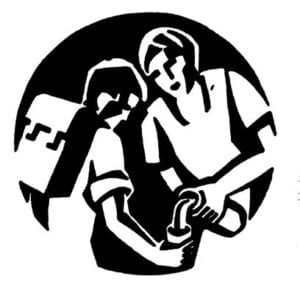 become more fully alive by providing for Christ in the thirsty?
become more fully alive by providing for Christ in the thirsty?
Welcome Christ in the stranger? The immigration debate in this country is hotly debated and deeply divisive right now. Even some solution for Dreamers/DACA recipients is starting to seem out of reach. How would God’s good news require us to rethink our values and ways of living to become more fully alive by welcoming Christ in the stranger, the immigrant, the refugee?
Clothe Christ in the naked poor? The budget proposal under debate now calls for cuts to food assistance, housing assistance for renters and low income families, TANF/welfare spending, Supplemental Security Income [SSI] for the elderly, blind, disabled and poor. How would God’s good news require us to rethink our values and ways of living to become more fully alive in responding to Christ in the poor?
Care for Christ in the sick? That same budget proposal currently before national leaders includes $763 billion in cuts to Medicaid and increased obstacles to access. How would God’s good news require us to rethink our values and ways of living to become more fully alive by caring for Christ in the sick?
This is indeed a “Time of Fulfillment,” a time of great opportunity. It is a time of sharpened choices and stark differences in values. People will disagree about specific tactics in different contexts – and that could be enriching. But at present there is far too little respectful engagement, honest research and discussion, careful and compassionate listening and commitment to truth in the nation. The bitter divisions, name-calling, hatred and violence are clear evidence that we need to find effective ways to rethink our values and ways of living to become more fully alive in responding to this situation.
The good news is that there are clearly better ways to live, ways that will heal and enrich us all—as individuals, families, communities, nations. We need to believe God’s good news that respectful encounter, truth, love, compassion and service are what truly bring forth fuller Life for all. Then we can together rethink the ways we are living and find the Way to fuller Life in joy.
[Art from the Works of Mercy series by Ade Bethune for The Catholic Worker]
James E. Hug, S.J., has a long history working in social ethics and social justice advocacy in the Catholic community. He served 24 years as the President of the Center of Concern, a Washington, DC based social justice institute rooted in Catholic social tradition, working for greater economic, social, and ecological justice globally. He holds a doctoral degree in Christian ethics from the University of Chicago and a master’s degree in Christian spirituality from St. Louis University.
Fr. Hug’s research has focused on issues of faith and economic justice and he has lectured and directed workshops throughout the U.S. and in Europe, Asia, Africa, and Australia. Currently he serves as sacramental minister for the Adrian Dominican Sisters and writes on issues of spirituality for social transformation in these difficult times. His blog, “Truth that does Justice,” can be found on the website for the Dominican Center: Spirituality for Mission, www.dominicancenter.org.
Past publications have included Catholic Social Teaching: Our Best Kept Secret, Social Revelation: Profound Challenge for Christian Spirituality, and Tracing the Spirit: Communities, Social Action, and Theological Reflection. Jim has also written chapters for Globalization and Catholic Social Thought: Present Crisis, Future Hope and The Pastoral Circle Revisited: A Critical Quest for Truth and Transformation.
Fr. Hug’s research has focused on issues of faith and economic justice and her has lectured and directed workshops throughout the U.S. and in Europe, Asia, Africa and Australia. He was the editor of the Center of Concern’s “Catholic Social Teaching: Our Best Kept Secret, author of Social Revelation: Profound Challenge for Christian Spirituality,” and the editor of “Tracing the Spirit: Communities, Social Action, and Theological Reflection.” Jim has also written chapters for “Globalization and Catholic Social Thought: Present Crisis, Future Hope” and “The Pastoral Circle Revisited: A Critical Quest for Truth and Transformation.”

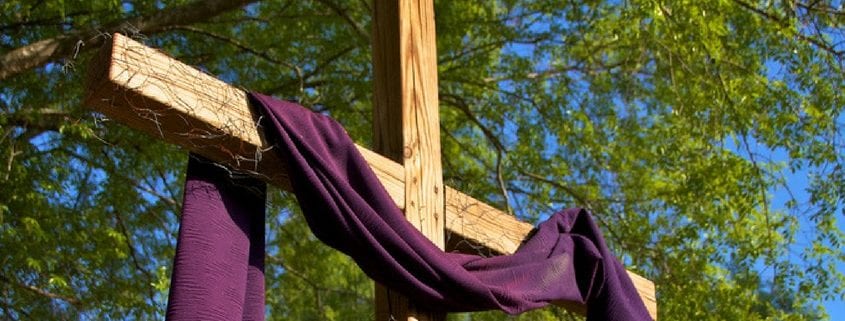

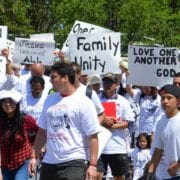


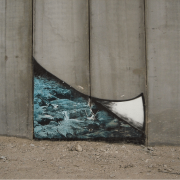
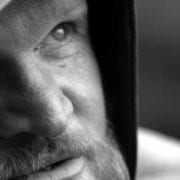

Lent is a time to replenish our spiritual tool-kit for the battles ahead.